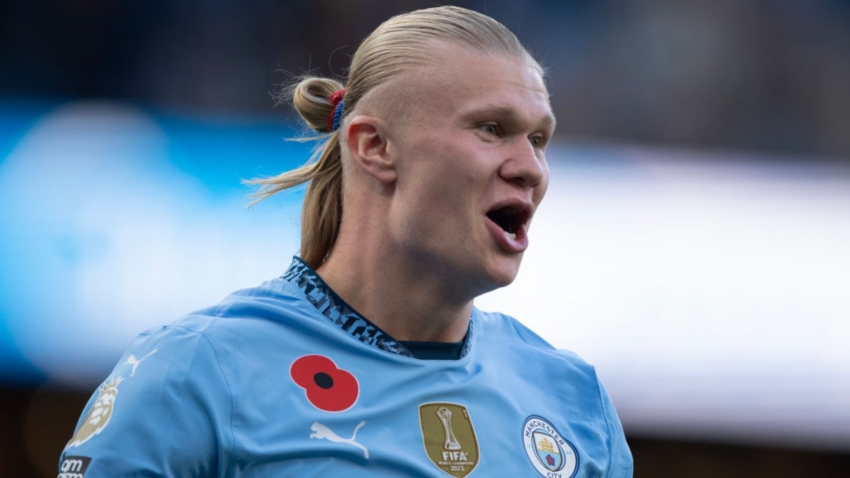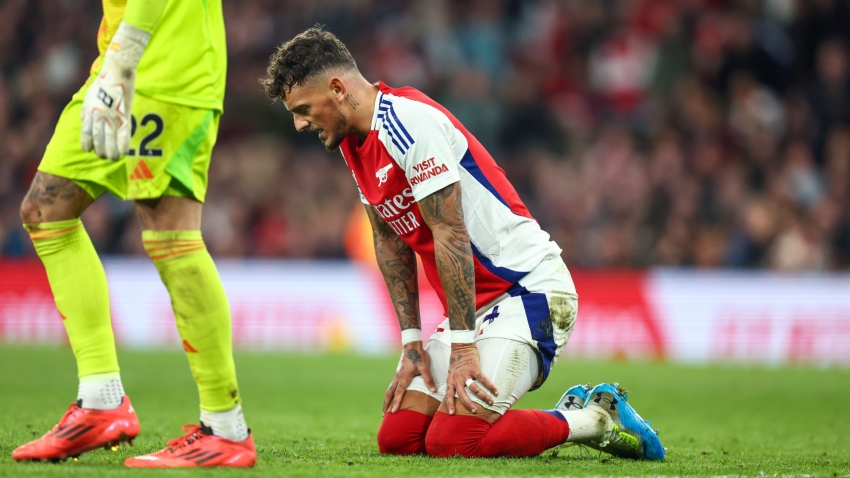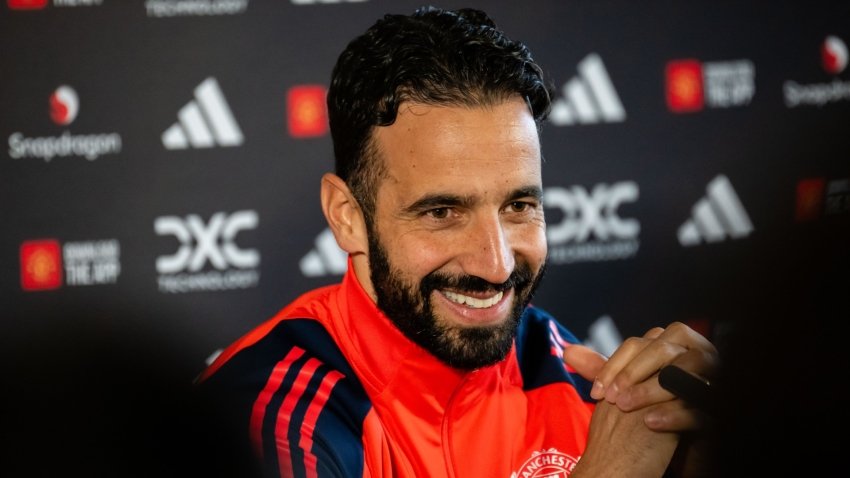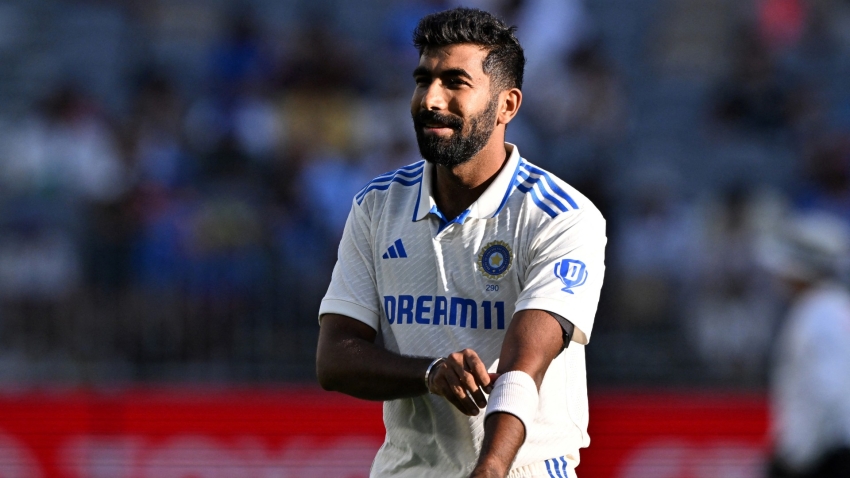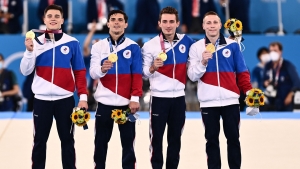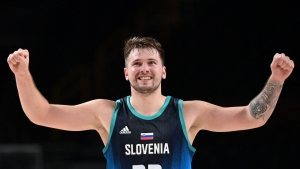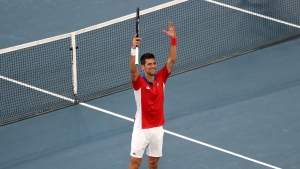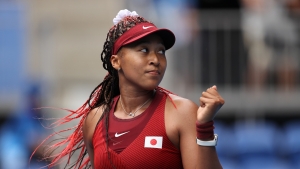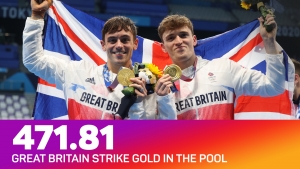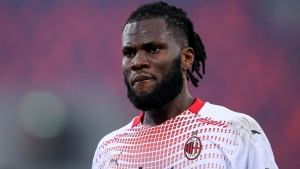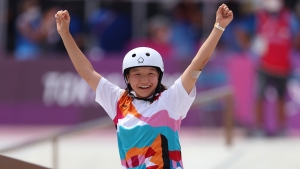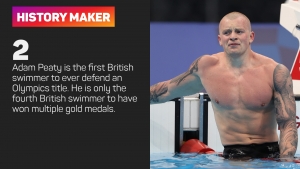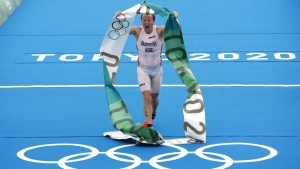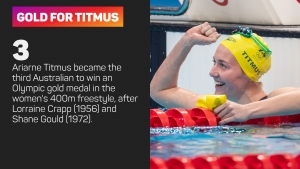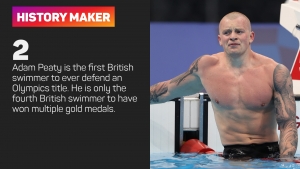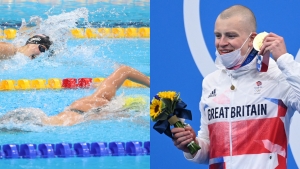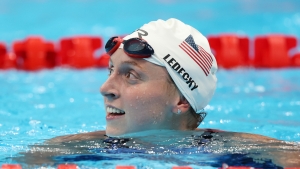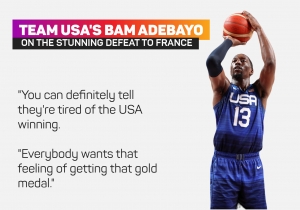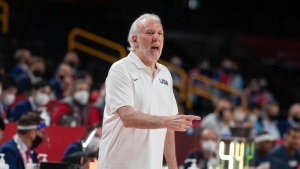Norway's Kristian Blummenfelt said he never had a doubt he would win the triathlon, and his confidence never wavered as he pulled away late to take the gold.
The top contenders spent much of Monday's race biding their time, with all the favourites in the mix following the swim and bike legs, but Blummenfelt drove the pace on the final leg.
When the lead group winnowed down to himself, Great Britain's Alex Yee and Hayden Wilde of New Zealand, Blummenfelt urged the 23-year-olds to keep the hammer down – then ran away from them in the end.
One last kick over the final kilometre put Blummenfelt atop the podium, with Yee taking silver and Wilde bronze.
"We were like 10 guys in the running lead and when he picked up the pace I saw that we were down to four and I tried to get [Yee] motivated to keep the pace," Blummenfelt told reporters.
"I said, 'Guys, we have a medal now, keep the gas on,' and I think that for Alex and Hayden this is a great moment to get an Olympic medal, too."
Yee's compatriot Jonathan Brownlee, who won silver in the event in Rio and bronze in London as his brother Alistair took gold in both races, finished fifth on Monday.
"I told myself last night that all I can do is try my hardest and before that, prepare," Brownlee said. "I did everything I could, I got ready for the heat, I trained as hard as I could, had a great team around me and that's all you can ask.
"I think I've been very, very fortunate in my two Olympic Games, I've had two medals. It's hard to perform and I've performed well in three."
'NERVOUS' OSAKA KEEPS ROLLING
Playing for the second consecutive day, second-seed Naomi Osaka showed no signs of fatigue as she cruised to a 6-3 6-2 second-round victory over Switzerland's Viktorija Golubic on Sunday.
Japan's big hope Osaka had to play back-to-back after having her schedule altered following the honour of lighting the Olympic cauldron Friday, and the other top women in action looked just as strong after a day off Sunday.
"Honestly, I feel like I was a bit more nervous before the match," Osaka told reporters. "I felt a lot of butterflies, but I think as I started playing and feeling more comfortable, I knew that no matter what it would be a great match."
After pulling out of the French Open before the second round and skipping Wimbledon, the four-time grand slam winner has not had much match time over the last two months, but her goal in Tokyo remains the same.
“It would mean a lot to win gold here, but I know it's a process," she said. "I know these are the best players in the world, and honestly I haven't played in a while, so I'm trying to take it one notch at a time.
"All in all, I'm just really happy to be here. I haven't been in Tokyo for a couple of years."
In other early matches, seventh-seeded Garbine Muguruza of Spain rolled past China's Wang Qiang 6-3 6-0, while eighth seed Barbora Krejcikova had a tougher time with Canada's Leylah Annie Fernandez before moving on 6-2 6-4 and 11th seed Anastasia Pavlyuchenkova defeated Anna-Lena Friedsam 6-1 6-1.
MACNEIL EARNS CANADA'S FIRST GOLD
It took Margaret MacNeil a few moments to realise she had won Canada's first gold medal of the Tokyo Games.
The 21-year-old usually wears contact lenses but does not put them on when she is in the pool, so she had to focus to see her name atop the scoreboard after the 100m butterfly at the Tokyo Aquatics Centre.
"I like to check the scoreboard pretty quickly, but it's hard just because I don't have contacts," she said. "It does take me a minute to read the scoreboard, so I was just trying to squint and see where I came."
Her vision problems may have been a benefit during the race, which saw her edge China's Zhang Yufei by 0.05 from lane seven.
"I could hardly see anyone on the far side of the pool, which I think helped me a lot, because I was able to just focus on my own race," MacNeil said. "I just put my head down and tried to get to the wall as fast as possible. I'm really glad it all came together."
While MacNeil took the first gold medal in the pool Monday, her win was overshadowed by later events.
Great Britain's Adam Peaty defended his Olympic title in the 100m breaststroke, while Ariarne Titmus of Australia dethroned the reigning champion Katie Ledecky in the 400m freestyle.
In the final medal event of the day, Caeleb Dressel – Michael Phelps' heir apparent – and the USA won the 4x100m freestyle relay by 1.14 seconds over Italy.
UPSETS ABOUND IN FENCING
Three of the top six women in the world were eliminated early in the women's sabre competition Monday.
Top-ranked Olga Kharlan of Ukraine, twice a bronze medallist, fell to Yang Hengyu of China 15-12 in the round of 32 to end her hopes of a third straight medal.
Fourth-ranked Shao Yaqi of China and world number six Anne-Elizabeth Stone of the USA went out in the same round.
Sofia Velikaya of Russia, who took silver in Rio, remains alive heading into the quarter-finals later Monday along with 2016 fourth-place finisher Manon Brunet of France.
REIGNING CHAMPIONS FIJI OPEN RUGBY SEVENS PLAY
Reigning gold medallists Fiji rallied in the second half to defeat Japan 24-19 in a rematch of the Rio 2016 semi-finals.
Fiji trailed 19-12 but fought back through a pair of tries and a conversion from substitute Waisea Nacuqu in the final four minutes.
The team they beat for gold five years ago, Great Britain, opened play with a flourish, thrashing Canada 24-0, while New Zealand crushed South Korea 50-5.
Fourth-place finishers in 2016, South Africa defeated Ireland 33-14 while Argentina beat Australia 29-19 and the United States edged Kenya 19-14.









